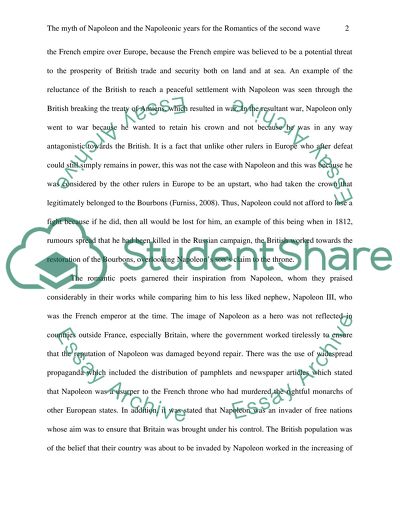Cite this document
(“The myth of Napoleon and the Napoleonic years for the Romantics of the Essay”, n.d.)
The myth of Napoleon and the Napoleonic years for the Romantics of the Essay. Retrieved from https://studentshare.org/literature/1497044-the-myth-of-napoleon-and-the-napoleonic-years-for-the-romantics-of-the-second-wave
The myth of Napoleon and the Napoleonic years for the Romantics of the Essay. Retrieved from https://studentshare.org/literature/1497044-the-myth-of-napoleon-and-the-napoleonic-years-for-the-romantics-of-the-second-wave
(The Myth of Napoleon and the Napoleonic Years for the Romantics of the Essay)
The Myth of Napoleon and the Napoleonic Years for the Romantics of the Essay. https://studentshare.org/literature/1497044-the-myth-of-napoleon-and-the-napoleonic-years-for-the-romantics-of-the-second-wave.
The Myth of Napoleon and the Napoleonic Years for the Romantics of the Essay. https://studentshare.org/literature/1497044-the-myth-of-napoleon-and-the-napoleonic-years-for-the-romantics-of-the-second-wave.
“The Myth of Napoleon and the Napoleonic Years for the Romantics of the Essay”, n.d. https://studentshare.org/literature/1497044-the-myth-of-napoleon-and-the-napoleonic-years-for-the-romantics-of-the-second-wave.


